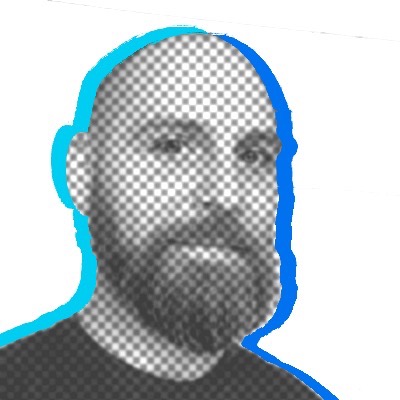Activity
Mon
Wed
Fri
Sun
Feb
Mar
Apr
May
Jun
Jul
Aug
Sep
Oct
Nov
Dec
Jan
What is this?
Less
More
Memberships
OfferLab
9.5k members • Free
Community Builders
8.2k members • Free
GuitarZoom FREE
3.2k members • Free
Pro Gig Academy
4.1k members • Free
The AI Advantage
69.5k members • Free
Synthesizer
33.9k members • Free
Snappy Community
501 members • Free
Kollege
1.3k members • Free
GC
Growthworks Community
24.2k members • Free
2 contributions to Snappy Community
System as a Service (SaaS) Idea: Central Dashboards 🏠
I've noticed a kind of 'System as a Service' that applies to so many industries - Central Dashboards. For example - an Amazon Coach teaches the strategies for how to become a successful online seller, and also provides an E-Commerce Dashboard where you can manage your PPC, monitor your sales, check inventory, and automate review requests. Here are some more ideas: Social Media Dashboard: A social media expert could create an info-product that teaches businesses how to create a successful social media strategy, and combine it with a central dashboard where businesses can manage all their social media accounts, schedule posts, track analytics, and engage with their audience. Marketing Dashboard: A marketing consultant could create an info-product that teaches businesses how to create and implement a marketing plan, and combine it with a central dashboard where businesses can track their marketing campaigns, monitor their website traffic, and analyze their audience. Customer Relationship Management (CRM) Dashboard: A sales expert could create an info-product that teaches businesses how to manage their customer relationships effectively, and combine it with a central dashboard where businesses can track their leads, manage their contacts, and automate their sales processes. Project Management Dashboard: A project management expert could create an info-product that teaches businesses how to manage their projects effectively, and combine it with a central dashboard where businesses can track tasks, collaborate with team members, and manage deadlines. Financial Dashboard: A financial consultant could create an info-product that teaches businesses how to manage their finances effectively, and combine it with a central dashboard where businesses can track their income and expenses, manage budgets, and plan for financial goals. Website Analytics Dashboard: A website optimization expert could create an info-product that teaches businesses how to optimize their website for better performance, and combine it with a central dashboard where businesses can track website analytics, monitor visitor behavior, and make data-driven decisions for website improvement.

3 likes • Mar '23
I love dashboards (is that weird?) and I love this concept ‘cause, frankly, I’d not thought of it this way… This works especially well if you can inject your ‘methodology’ into the dashboard UX … then every day the user references it, your dashboard is subtly marketing your philosophy. (Think about how an EOS dashboard would continually reinforce the ‘Entrepreneurial Operating System’ concept). There would be further opportunity to build community and even gamification around the metrics. 🤔
2 likes • Mar '23
@Robert Boulos I think it ties back to this comment you'd made earlier: "great software has a vision, instead of being as flexible as possible. Great software is opinionated, and doesn't just give you every feature - it gives you an approach." A great dashboard also gives you approach (by what is included and what is NOT included).
The Power of Saying 'No' in Software Development
If you watch Sam's videos, he talks about how he's always saying 'no' to things, and the power of that word. I think he even calls himself Mr. No. I think it's interesting, because saying no is a great habit to have in software development, and that philosophy reflects in the quality of Skool. Every idea should have to prove it's worth, and work hard to be implemented. It's better to say no to every idea the first time it appears, and let it stand outside in the rain for a few days. If it keeps coming back, that's when you know it might be worth taking a deeper look - because each time you say yes, you've actually said yes to a whole chain of events. You need to take that single yes through planning, design, coding, testing, tweaking, testing, tweaking, testing, tweaking...updating any copy if necessary, making sure pricing is not effected, launching, and then hoping you didn't break any promises. And once that feature is out there, it's tough to take away - people will get pissed off, even if the feature sucked. So it's better to start with no - and pick carefully when you do say yes. Right now, Skool doesn't have a landing page builder, or a catalogue of groups, or a post scheduler, or custom gamification, or white labeling, or a myriad of other requests that come in daily. I definitely like a few of those ideas, and some of them may become reality - but I think what makes great software is the tendency to lean towards no, instead of trying to please everyone all the time. Because great software has a vision, instead of being as flexible as possible. Great software is opinionated, and doesn't just give you every feature - it gives you an approach. Skool certainly does that, and I think it's better for it.

1 like • Mar '23
"Because great software has a vision, instead of being as flexible as possible. Great software is opinionated, and doesn't just give you every feature - it gives you an approach." I think this is so true. Clickfunnels used to have this but lost it along the way. The same can be said with info products, events, etc. What do you stand for? It can't (and shouldn't) be everything.
1-2 of 2
@dale-dubilowski-1486
Digital Marketer & Email Newsletter Publisher > Helping YOU become to go-to authority in your market.
Active 2h ago
Joined Mar 7, 2023
Powered by


